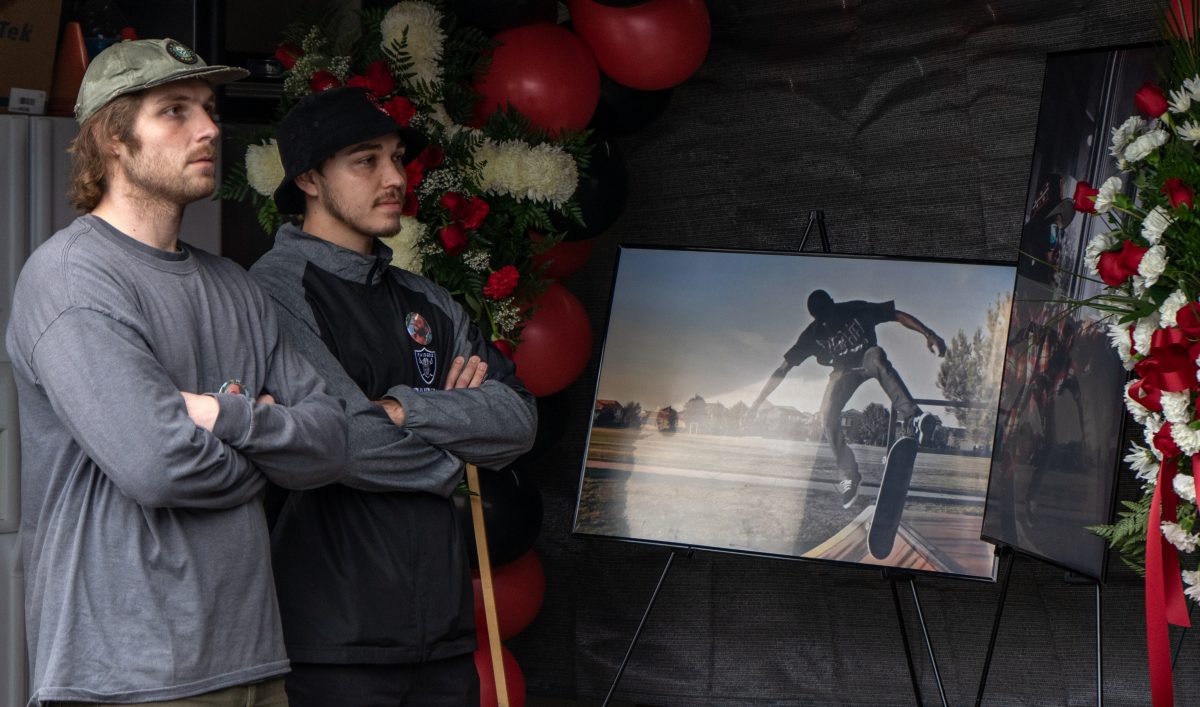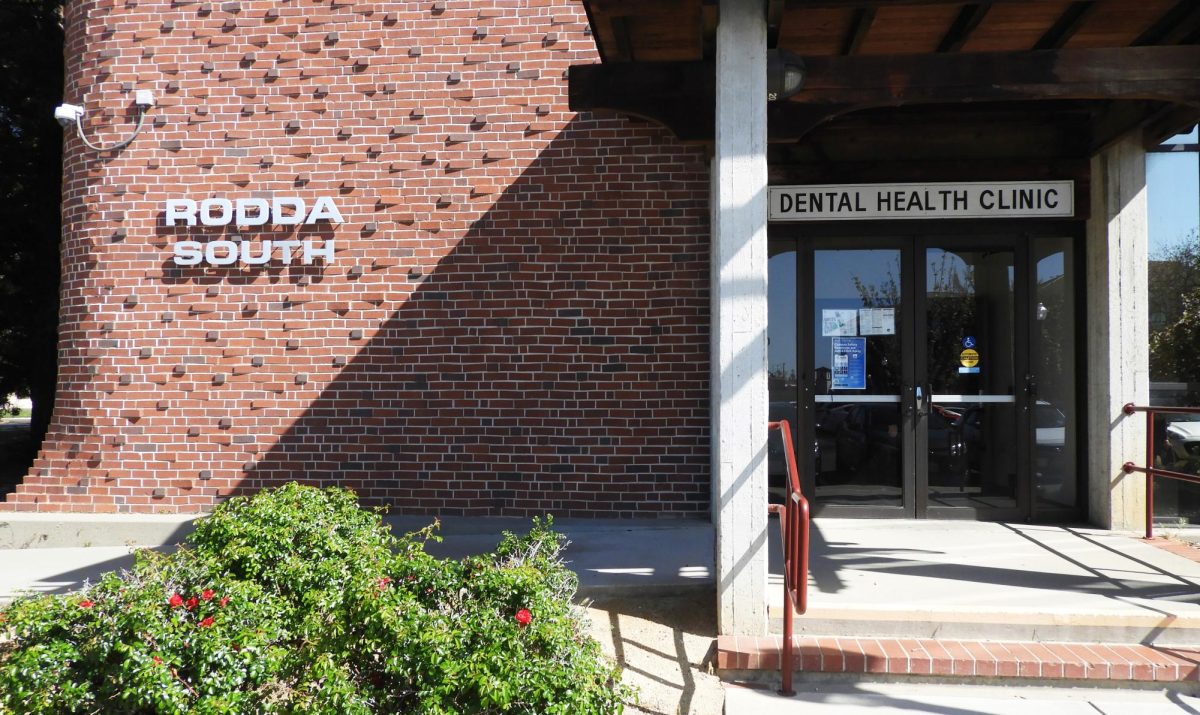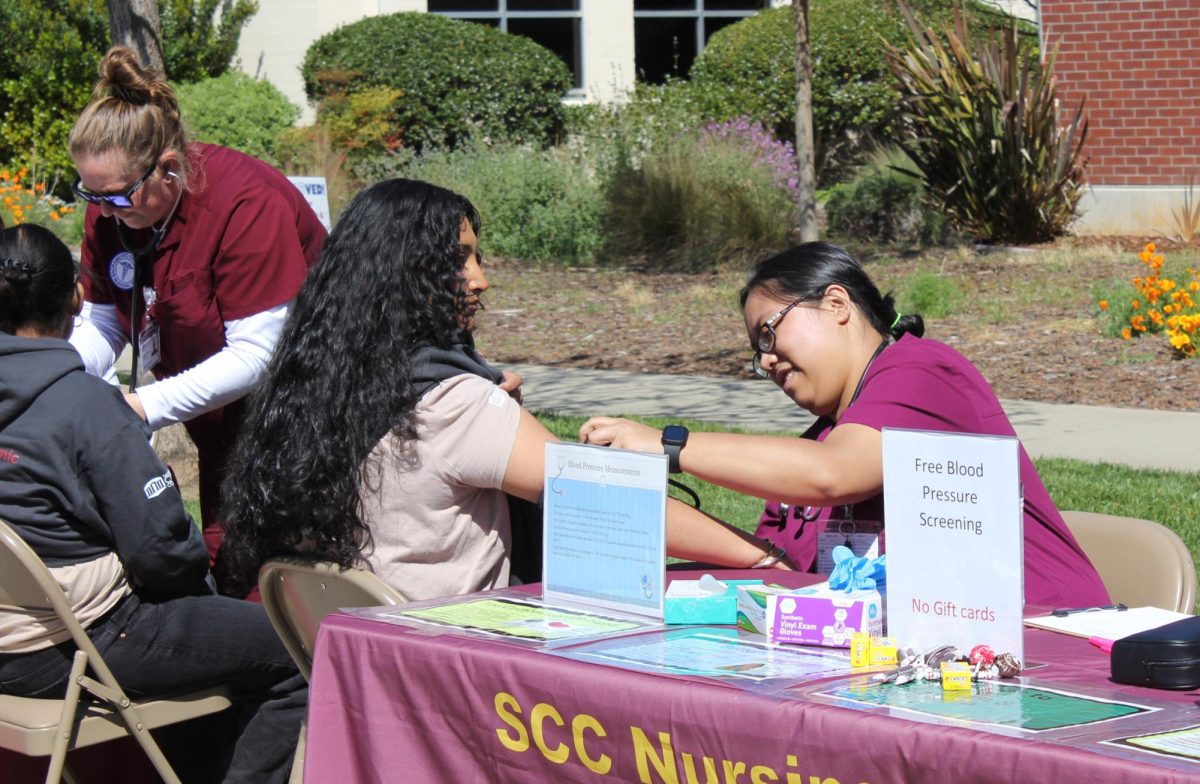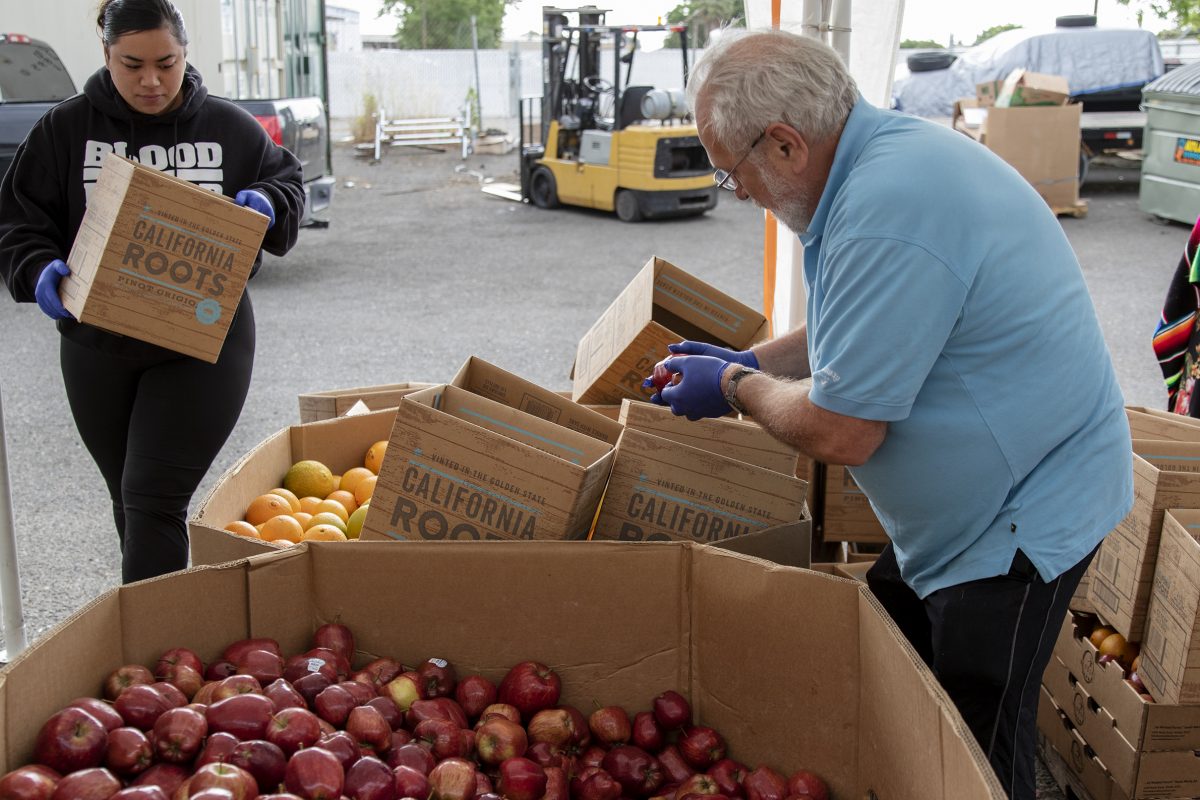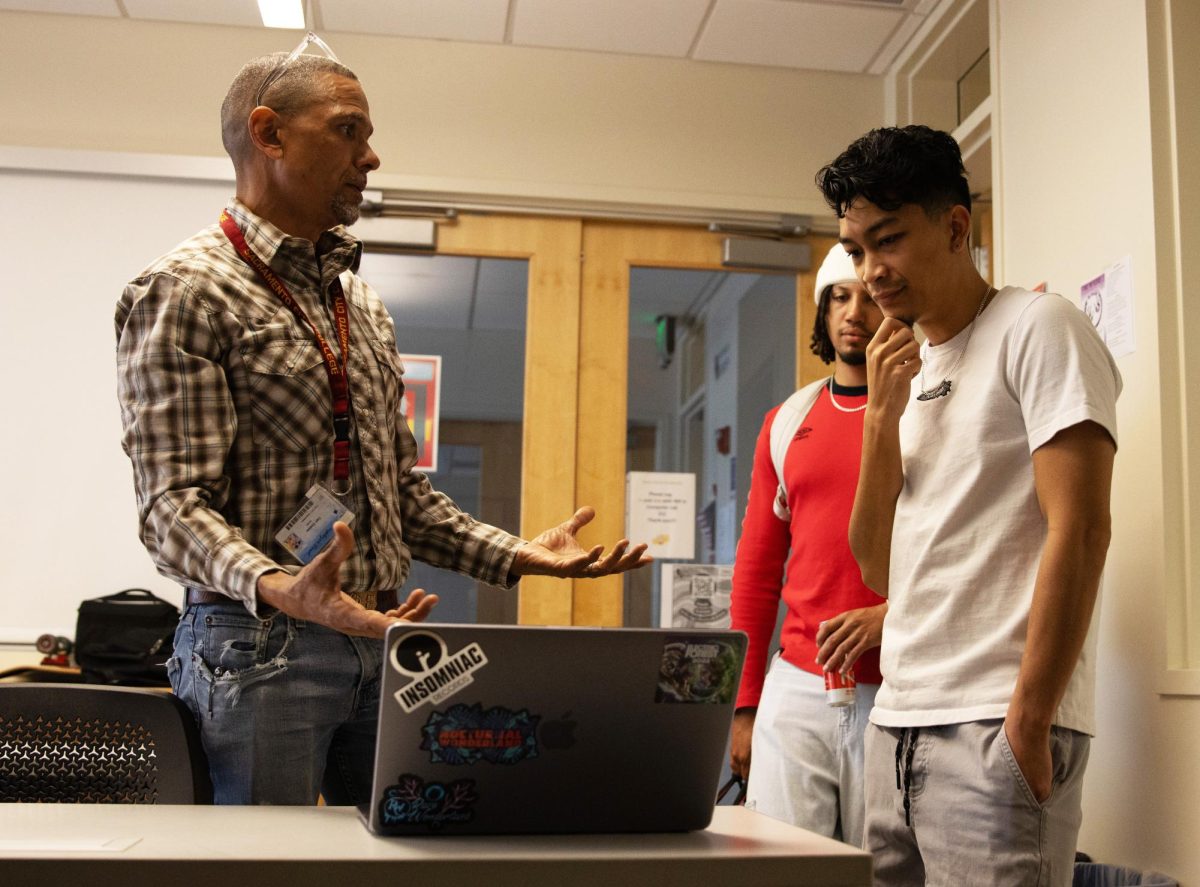As a student in 2015, Nyla Vaivai was a part of RISE, a group on campus that believes that every student can be successful in achieving a higher education and helps to make that happen. She noticed that a lot of RISE students were hungry.
“Whenever we put food out, they ate it—no hesitation,” Vaivai said. “You can just tell when you see your everyday students that were OK in food security than those that were in the food insecurity bracket. We saw a big number of that.”
California has a food insecurity rate of 11.7% which translates to 4.6 million people who do not have access to affordable, nutritious food, according to the California Association of Food Banks. It states that on average, one of every eight Californians does not know where their next meal will come from. According to Feeding America, there are 215,570 food insecure people in Sacramento County, 14.4% of the population based on a 2017 study. City College is no different.
Vaivai talked to her boss and decided to take action. She met with the Sacramento Food Bank in 2015. She did all the paperwork to set up a remote food site through the food bank, and in March 2016 City College launched its first food distribution. The college has continued it twice a week until recently. The only requirement is that students have to be Los Rios students who have hunger.
“When I did the sign-up for that week for people to come and get food, we had over 300 sign-ups just within one week,” Vaivai said. “From there it grew to where now we are serving close to 1,500 every week.”
A week before City College closed in mid-March due to the COVID-19 pandemic, Vaivai was determined to continue the food distribution and started to take precautions. She had the volunteers wear gloves and pass them out to the students picking up food. Students that walked up to receive food, Vaivai would have them stand six feet apart. A few days later she had the students stay in their cars and had volunteers deliver bags or boxes of food to students.
“I feel that we could have still had it on campus because we were doing the distancing, and that is what everyone is doing,” Vaivai said. “Everyone that comes to pick up food has to remain in their cars, and that’s what we did. And this was before Sacramento was on a lockdown.”
When the campus moved fully online March 18, the food distribution was temporarily shut down as well. Vaivai included resources for food distributions in the Sacramento area on the Panther Paw Produce Instagram page.
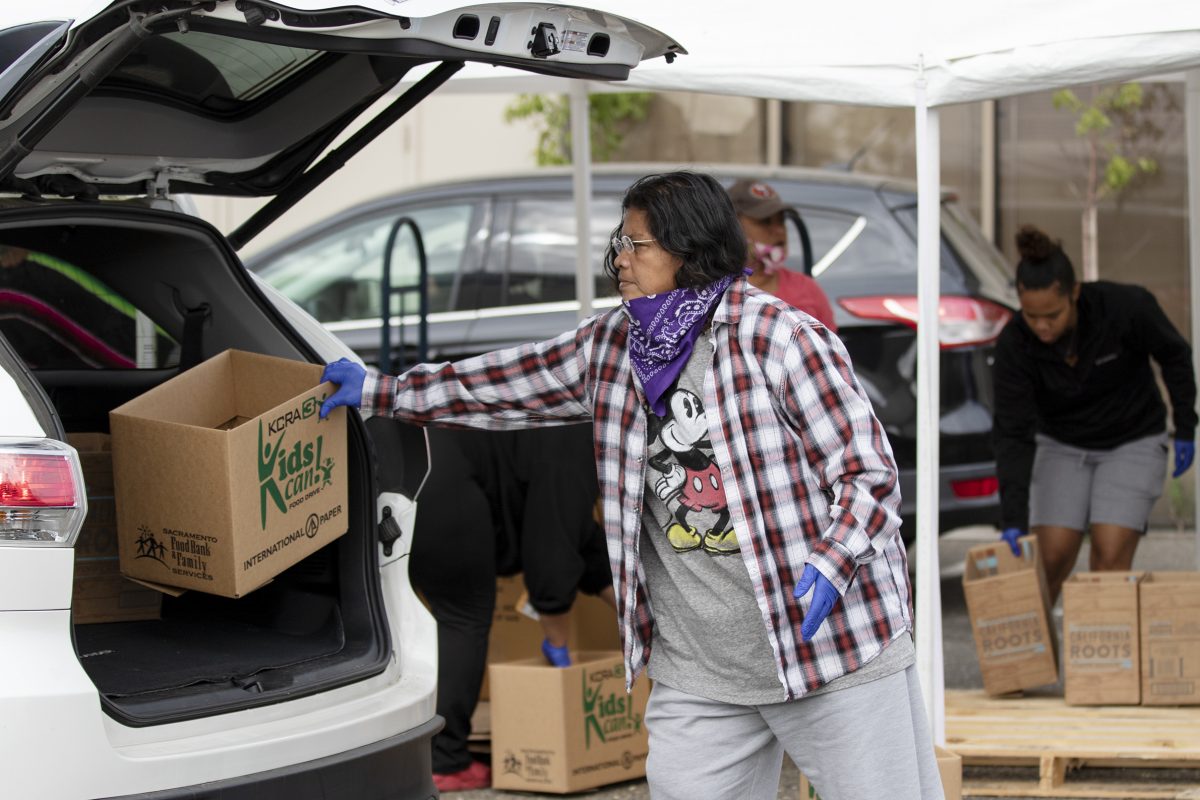
Since the campus closure, Vaivai and five others have started to volunteer at other food distributions in Sacramento. She volunteers three to four days a week, depending on the site schedules and volunteers needed. But she has noticed that social distancing has removed the personal aspect that students received on campus.
“All of these food distributions I’ve noticed there’s a disconnect as far as a human connection,” Vaivai said. “Now, you don’t even know the people’s name that you see weekly picking up these food, and sometimes the faces change because volunteers come and go. You can’t sit and chitchat and have a conversation. Everybody is like come and go, come and go real quick because there are multiple lines, and then there’s that distance of 6 feet or better.”
Vaivai talked to faculty who volunteer at food distributions at other schools and learned that they are having low numbers of families showing up to receive food. She feels it has to do with some families not having vehicles or the limitations some food distributions have—that they must have a valid California ID or can only go once a month—unlike City College.
One of the food distribution sites where Vaivai volunteers is at the New Covenant Agape Ministries—held Tuesday through Saturday from 9–10 a.m. According to Lisa Maui, ministry manager, they serve an average of 350 to 550 cars a day or about 1,200 or more people since some cars get food for up to seven families.
Maui has been a part of this ministry doing food distributions for 15 years. The ministry, also partnered with Sacramento Food Bank, is able to provide food to everyone who comes through their line.
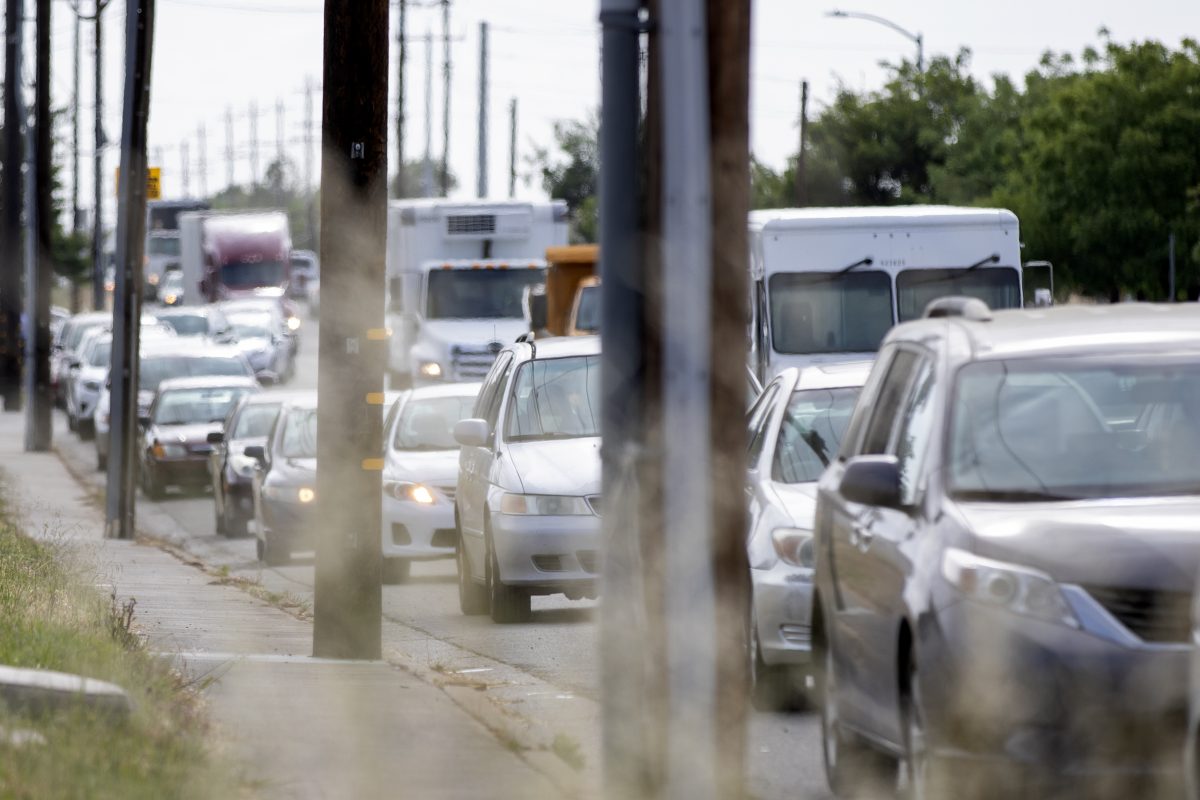
By 8 a.m. traffic backs up throughout the warehouses on Power Inn Road and around the corner on Elder Creek Road past the train tracks, cars of families waiting to receive food. According to Maui, this happens every food distribution day, so to get the line moving, they start to serve people as early as 8 a.m. once the traffic gets to the train tracks.
“Even in the times that our nation is in, throughout this hard ordeal, it’s our pleasure to serve people because that’s what we’re called to ministry to do,” Maui said. “Even though it’s kind of a risk, we don’t look at it like that because we know there’s a need out there. And if we can meet that need, we’re here to serve to meet that need.”
Vaivai has a lot of volunteers who help at the City College food distribution, and her friend Tamara Knox is one. A City College graduate and instructional assistant in photography, Knox has volunteered for over three years.
“I felt it was empowering for the students and less stressful for them as well,” Knox said of the twice-weekly distribution. “Our campus was doing a very positive thing that helped students in need.”
Since the shutdown, Vaivai and Knox worry about some students with whom they have built relationships. City College was a convenient food pick-up point for students, especially with the light rail station next to campus.
“We’re like bartenders,” Vaivai said. “Everyone goes to the bartender and spills out their life story. That’s how it was for us. A lot of the time we were a part of their weekly lives.”
Knox said she has had students contact her, trying to find where they can receive food.
“[It] has been heartbreaking,” Knox said. “There’s always the one student that makes it a routine. Seeing those particular students all the time, I feel like it was really important to them to stop [by the food distribution].”
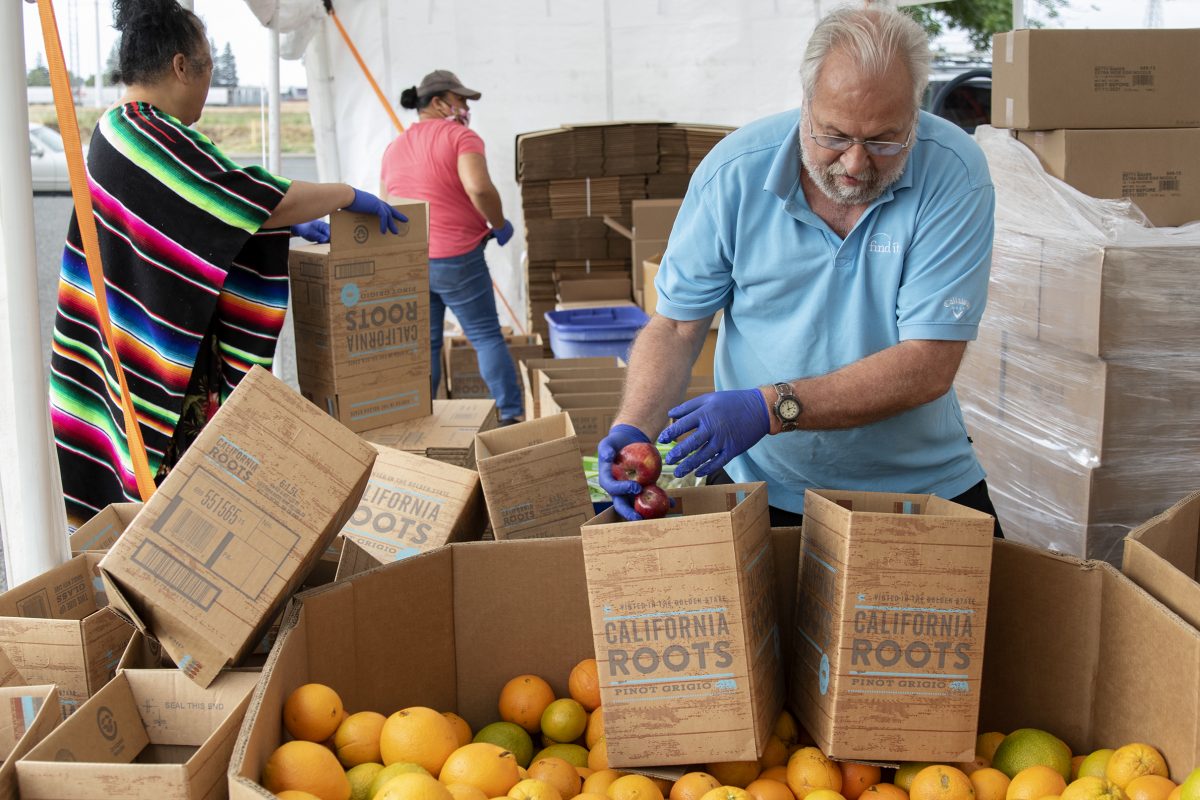
Vaivai remembers one student in particular who, at the time, had two young daughters and a baby boy. She noticed this student for months and would try to get her to come to the food distribution booth, but she always heard the same answer: “Nah, I’m OK.” One day Vaivai saw the student about to cross the parking lot in front of the bookstore with her three children and approached her again.
“Look, it’s free. It’s for everyone,” Vaivai said to the student. “And it’s not just for the poor. Look at it this way: Why would you go spend $30 on produce when you can get it here for free every week?”
The student was hesitant, but Vaivai asked the children if they wanted strawberries. The student responded, “Yeah, but there are people that are even less fortunate than me.”
“And there is and there always will be,” Vaivai said to the student. “But this is for everyone. We have faculty and staff that come in here because you just don’t know what goes on behind closed doors. And we have people come here that clearly don’t need it, but they take advantage of it. Because they’re thinking, ‘I’m going to save my money. Let me go over here and get it for free.’”
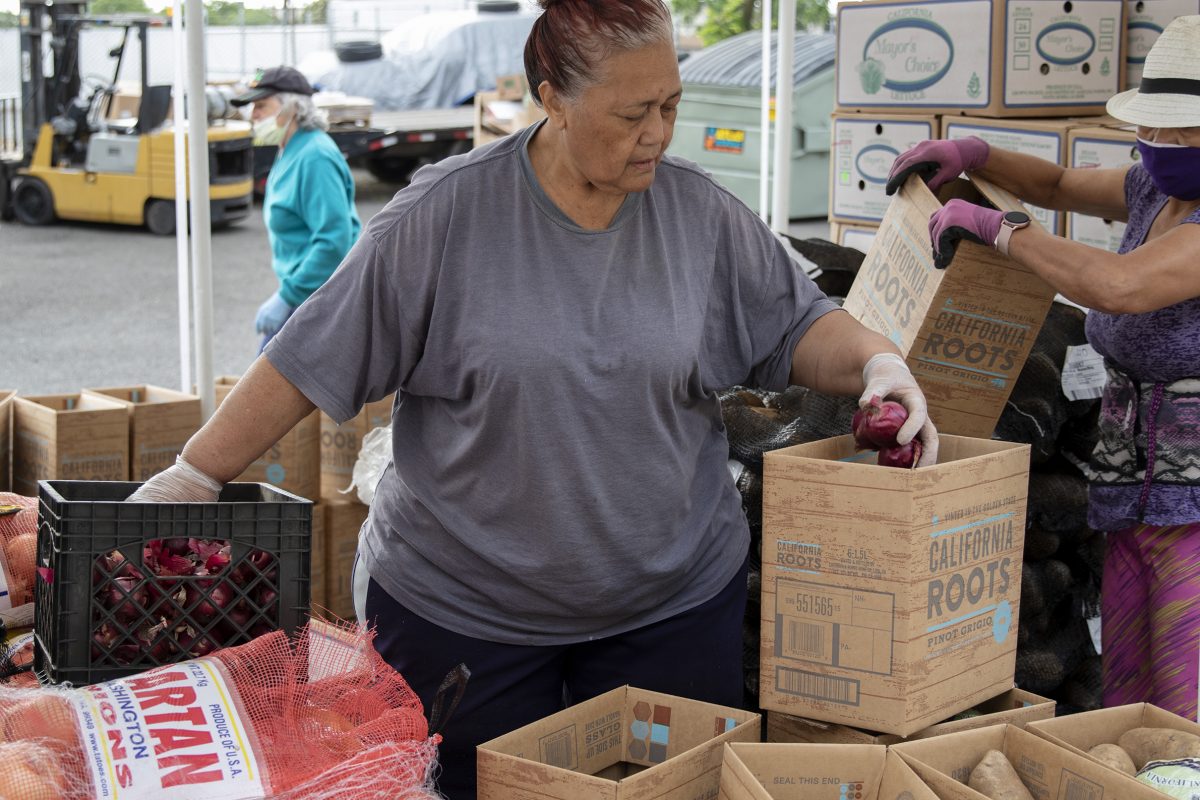
Now that student is a regular and has been coming to the food distribution for four years. Vaivai and the volunteers know her and have seen her children grow up.
“For people like that it’s not so easy,” Vaivai said. “They’re ashamed, or they feel like there’s someone worse off than them, so they don’t come and take the food.”
Each semester Vaivai sees new students with this perception and continues to let the students know the food distribution is for everyone.
“Majority of them have the perception that ‘I shouldn’t take [this] because it’s for homeless students,’” Vaivai said. “They’re the ones that I will personally go up to. If I catch it at that moment, I drop everything and walk up to them, and I try everything to make them feel comfortable. This is not just for homeless students. This is also for people who do have a little something.”
Food distribution resources can be found at the Panther Paw Produce Instagram page: @pather_paw_produce_scc

